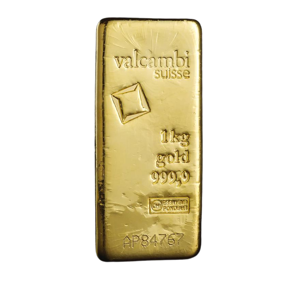Tavex uses cookies to ensure website functionality and improve your user experience. Collecting data from cookies helps us provide the best experience for you, keeps your account secure and allows us to personalise advert content. You can find out more in our cookie policy.
Please select what cookies you allow us to use
Cookies are small files of letters and digits downloaded and saved on your computer or another device (for instance, a mobile phone, a tablet) and saved in your browser while you visit a website. They can be used to track the pages you visit on the website, save the information you enter or remember your preferences such as language settings as long as you’re browsing the website.
| Cookie name | Cookie description | Cookie duration |
|---|---|---|
| tavex_cookie_consent | Stores cookie consent options selected | 60 weeks |
| tavex_customer | Tavex customer ID | 30 days |
| wp-wpml_current_language | Stores selected language | 1 day |
| AWSALB | AWS ALB sticky session cookie | 6 days |
| AWSALBCORS | AWS ALB sticky session cookie | 6 days |
| NO_CACHE | Used to disable page caching | 1 day |
| PHPSESSID | Identifier for PHP session | Session |
| latest_news | Helps to keep notifications relevant by storing the latest news shown | 29 days |
| latest_news_flash | Helps to keep notifications relevant by storing the latest news shown | 29 days |
| tavex_recently_viewed_products | List of recently viewed products | 1 day |
| tavex_compare_amount | Number of items in product comparison view | 1 day |
| Cookie name | Cookie description | Cookie duration |
|---|---|---|
| chart-widget-tab-*-*-* | Remembers last chart options (i.e currency, time period, etc) | 29 days |
| archive_layout | Stores selected product layout on category pages | 1 day |
| Cookie name | Cookie description | Cookie duration |
|---|---|---|
| cartstack.com-* | Used for tracking abandoned shopping carts | 1 year |
| _omappvp | Used by OptinMonster for determining new vs. returning visitors. Expires in 11 years | 11 years |
| _omappvs | Used by OptinMonster for determining when a new visitor becomes a returning visitor | Session |
| om* | Used by OptinMonster to track interactions with campaigns | Persistent |
| Cookie name | Cookie description | Cookie duration |
|---|---|---|
| _ga | Used to distinguish users | 2 years |
| _gid | Used to distinguish users | 24 hours |
| _ga_* | Used to persist session state | 2 years |
| _gac_* | Contains campaign related information | 90 days |
| _gat_gtag_* | Used to throttle request rate | 1 minute |
| _fbc | Facebook advertisement cookie | 2 years |
| _fbp | Facebook cookie for distinguishing unique users | 2 years |
Is it Possible for Gold to Rust?

Gold has always been regarded as a symbol of wealth, luxury, and durability. Its timeless allure has fascinated humanity for centuries. But can this precious metal, renowned for its resilience and resistance to corrosion, ever rust?
In this comprehensive article, we will explore the fascinating question of whether gold can rust, delving into the science behind it and examining various viewpoints.
Understanding the Nature of Gold
Before delving into the topic, it is important to establish a fundamental understanding of gold’s properties. Gold is a noble metal, known for its exceptional stability and resistance to oxidation and corrosion. However, it is also malleable therefore careful consideration is needed when using it in every day products.
It is often used in jewellery, coins, and various industrial applications precisely because it does not corrode easily. However, there is more to the story.
What is Pure Gold?

Pure gold, often referred to as 24 – karat gold, is considered the purest form of this precious metal. It is renowned for its resistance to rust, tarnish, or any form of corrosion.
Gold, in its purest state, is immune to the effects of moisture, air, and most chemicals
Therefore, when you possess a piece of pure gold, often in gold coins, you can rest assured that it will maintain its lustrous appearance for generations.
Gold is often alloyed with other metals to enhance its durability and hardness. These alloys are typically used for practical purposes, such as making jewellery and coins.
The introduction of other metals like copper or silver into gold can potentially affect its corrosion resistance. While the resulting alloys may be more robust and highly resistant to malformation, they may also become susceptible to tarnish or corrosion over time.
Factors Influencing Gold’s Corrosion
While pure gold remains resistant to rust, its alloys can be influenced by a wide range of factors including environmental factors.
Exposure to corrosive substances, such as acids, can lead to tarnishing or corrosion of gold alloys. Additionally, environmental conditions, such as humidity and pollutants, can gradually affect the appearance of gold items.
We will now explore these factors in more detail:
Exposure to Corrosive Substances
- Acids: One of the primary culprits behind the tarnishing or corrosion of gold alloys is exposure to acidic substances. Acids can chemically react with the metals in the alloy, leading to discoloration and surface damage. Common household acids like vinegar or lemon juice, as well as environmental acids like those found in pollution, can gradually erode the alloy’s surface.
Environmental Conditions
- Humidity: The moisture content in the air, often referred to as humidity, plays a significant role in influencing the corrosion of gold alloys. High humidity levels can accelerate the tarnishing process by facilitating chemical reactions between the alloy’s components and moisture. Therefore, regions with consistently high humidity may pose a higher risk to gold items.
- Pollutants: Environmental pollutants, including sulphur compounds and airborne chemicals, can react with the metals in gold alloys. These reactions can lead to the formation of sulphides or other compounds on the alloy’s surface, resulting in a tarnished appearance. Industrial areas with higher levels of pollution may pose an increased risk to gold items.
Contact with Corrosive Materials
- Direct Contact: Gold alloys can also be affected when they come into direct contact with substances that can corrode them. For instance, wearing gold jewellery while applying cosmetics, lotions, or perfumes can introduce corrosive chemicals to the alloy’s surface, potentially causing tarnishing or discolouration.
Chemical Reactions within the Alloy
- Metal Composition: The specific metals used in a gold alloy can influence its corrosion resistance. Some alloying metals are more prone to oxidation and corrosion than others. For example, copper, a common alloying metal, can be more susceptible to tarnish compared to other options like platinum or palladium.
Temperature Fluctuations
- Thermal Expansion: Frequent and extreme high temperature fluctuations can induce stress on gold alloys. This stress can lead to microcracks in the alloy’s structure, making it more susceptible to environmental factors that contribute to corrosion.
Length of Exposure
- Prolonged Exposure: The longer a gold alloy is exposed to corrosive substances or adverse environmental conditions, the more likely it is to show signs of tarnish or corrosion. Regular and extended exposure over a period of time can compound the effects and accelerate the degradation of the alloy’s surface.
It is essential to consider these important factors when evaluating the corrosion resistance of gold.
Maintenance and Care

To ensure that your gold possessions maintain their brilliance over time, proper care and maintenance are crucial.
Regular cleaning and storing gold items away from harsh environments can go a long way in preserving their appearance.
For pure gold, maintenance is relatively straightforward, but for gold alloys, extra care may be needed to prevent tarnishing and preventing corrosion from naturally occurring factors.
Conclusion
Pure gold, in its natural state, does not rust, tarnish, or corrode. It remains virtually immune to the effects of moisture and air, making it an excellent choice for long-lasting and valuable items. However, when gold is alloyed with other metals for practical purposes, its corrosion resistance can be influenced by various factors, including environmental conditions and exposure to corrosive substances.
Understanding the nature of gold and its susceptibility to corrosion is vital for anyone who owns or works with this precious metal. By following proper care and maintenance practices, you can ensure that your gold possessions remain as stunning and valuable as the day you acquired them. Ultimately, while gold may not rust, responsible ownership and preservation are key to enjoying its enduring beauty for generations to come.

















